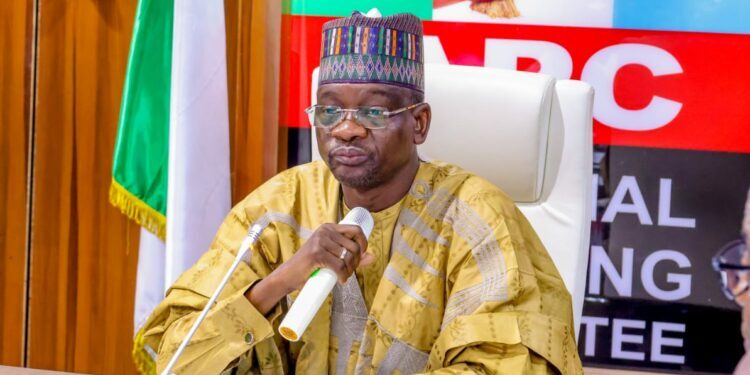The All Progressives Congress has dismissed the emerging 2027 opposition coalition aimed at unseating the ruling party, with Acting National Chairman Ali Bukar Dalori describing the movement as confined to “Abuja hotel politics” with no grassroots support.
Speaking in an interview with BBC Hausa, Dalori, who assumed office on Monday following the resignation of former APC national chairman Abdullahi Ganduje, expressed confidence that the coalition poses no significant threat to the ruling party’s political dominance.
The coalition, reportedly led by former presidential candidates Atiku Abubakar of the Peoples Democratic Party and Peter Obi of the Labour Party, alongside former Kaduna State Governor Nasir El-Rufai, has been positioning itself as a formidable opposition alliance ahead of the 2027 general elections.
However, Dalori dismissed the coalition’s relevance beyond the nation’s capital, suggesting that the opposition figures lack genuine national appeal. “Nobody is talking about a coalition except in Abuja,” he stated. “Even in Abuja, they are in a hotel, and when they are defeated in elections, they will leave the country.”
The APC chairman’s comments reflect the ruling party’s strategy of portraying the opposition alliance as an elite project disconnected from ordinary Nigerians, while expressing confidence in the party’s ability to retain power in the next electoral cycle.
Despite this public show of confidence, the APC is simultaneously grappling with internal challenges, including notable defections from party ranks. In a significant development, Mustapha Hamza Buhari Bakwana, a former political adviser to ex-Kano State Governor Abdullahi Ganduje, has officially resigned from the APC to join the New Nigeria Peoples Party.
Bakwana announced his defection during a meeting with political allies and supporters in Kano, declaring his allegiance to the Kwankwasiyya movement, a political bloc loyal to former governor Rabiu Musa Kwankwaso. His departure represents another blow to the APC’s influence in Kano State, a crucial political battleground in northern Nigeria.
The former Ganduje aide cited internal marginalization, exclusion, and what he described as a lack of political direction under Ganduje’s leadership as key factors driving his decision to leave the ruling party. His defection highlights ongoing tensions within the APC, particularly in Kano State, where factional disputes have continued to simmer beneath the surface.
The timing of Bakwana’s defection is particularly significant as it coincides with leadership changes at the national level and growing opposition mobilization ahead of the 2027 elections. His move to the NNPP strengthens Kwankwaso’s political machinery in Kano, potentially complicating the APC’s prospects in one of Nigeria’s most politically significant states.
While the APC leadership projects confidence about the opposition coalition’s limited impact, these internal defections suggest that the ruling party faces challenges both from external opposition forces and from within its own ranks as the 2027 electoral cycle approaches.



















